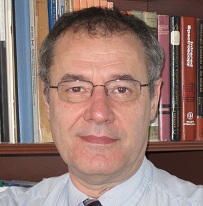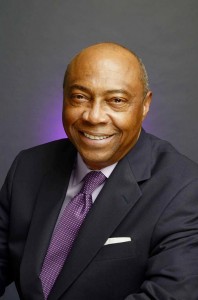|
FISK University has been awarded the Center of Research Excellence in Science and Technology (CREST) grant from the National Science Foundation to establish a Center for Biological Signatures and Sensing.
The $5 million award will allow the Center for Biological Signatures and Sensing (BioSS) to establish a strong interdisciplinary, collaborative, and innovative research program. In addition, it will promote the creation of new knowledge by fostering collaborations among Fisk faculty members from multiple disciplines and scientists from other universities, national labs, and industries.
"We congratulate all the team members. The infrastructure created by the capital equipment provided and extensive scientific networking will have a transformative, long-lasting positive effect on Fisk University and the larger scientific community," said Dr. Rodney Hanley, provost and vice president for academic affairs. "The BioSS Center research and education outcomes will have an enduring impact on training and future career success of undergraduates, graduates and post-doctoral scientists in an exploding area for research."
 |
| Arnold Burger |
Dr. Arnold Burger will serve as director and principal investigator of the center, scheduled to open April 1, 2016. Co-principal investigators on this project are professors Qingxia Li (mathematics), Steven Damo (chemistry), Brian Nelms (biology) and Steve Morgan (physics). T
heir research activities will unite the efforts of additional faculty teams from several academic units at Fisk. Additionally, BioSS researchers will interact with faculty members at Vanderbilt University and national laboratories collaborators who are also engaged in the training of graduate students participating in the Fisk-Vanderbilt Master's-to-Ph.D. Bridge program.
 |
| President Frank Sims |
"I commend our team of scientists for their research achievements and anticipate that this new initiative will create sustainable research opportunities for our faculty and students," said Frank L. Sims, president. "This opportunity will help us to further attract additional research funding, expand our collaborations with national labs, and will significantly affect the next generation of scientists from groups that are underrepresented in research careers."
BioSS will produce a synergistic understanding of biological sensing modalities that will become the basis of the next generation of sensors serving a multitude of applications. The projects topics will range from fundamental research in molecular biology, biochemistry, and computation to the development of practical solutions for deploying biosensors, chemical sensors and radiation sensors and imagers for biological applications.
The investigators will develop modular course opportunities and train undergraduate, graduate students and postdoctoral fellow. Additionally, there will be a component of outreach to students enrolled at local community colleges to facilitate their transition to 4-year colleges though involvement in summer research internships. [###]
.
|